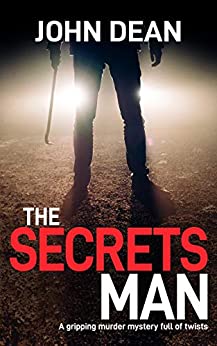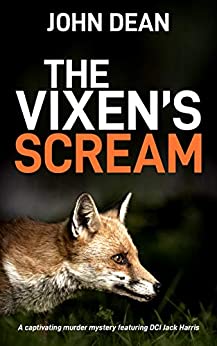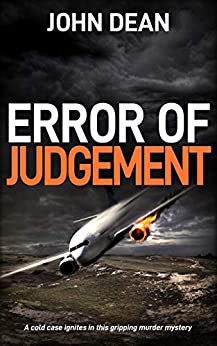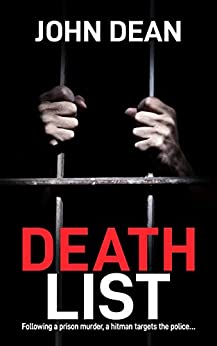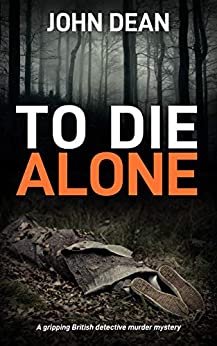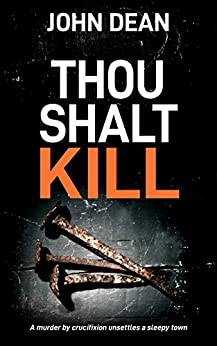
It gives me great pleasure to welcome John Dean onto the site today. A former award-winning journalist, John is the author of no fewer than 21 crime novels.
Alex: Tell me a bit about yourself, John.
John: I was born in Derby but spent most of my childhood in Darlington, County Durham. My passion for writing began early in life and was encouraged by my parents (Dad was a librarian, Mum went on to be a published poet) as well as teachers Judith Kent at primary school and Tom Cowley at comprehensive school. I went on to work as a journalist for forty years, both on newspapers and as a freelance, which is great experience for a writer. My first novel was published in 2005 and I retired from journalism in 2020 to concentrate on my writing.
Alex: How would you describe your writing, and are there particular themes that you like to explore?
John: Police procedurals written with pace. I find myself repeatedly drawn to themes including the lengths that ‘ordinary’ people will go to commit serious crime, including murder, and why they do it, the effect of ageing on police officers, villains and victims alike as they grow older, and the impact of crime on communities.
Alex: Tell me a bit about yourself, John.
John: I was born in Derby but spent most of my childhood in Darlington, County Durham. My passion for writing began early in life and was encouraged by my parents (Dad was a librarian, Mum went on to be a published poet) as well as teachers Judith Kent at primary school and Tom Cowley at comprehensive school. I went on to work as a journalist for forty years, both on newspapers and as a freelance, which is great experience for a writer. My first novel was published in 2005 and I retired from journalism in 2020 to concentrate on my writing.
Alex: How would you describe your writing, and are there particular themes that you like to explore?
John: Police procedurals written with pace. I find myself repeatedly drawn to themes including the lengths that ‘ordinary’ people will go to commit serious crime, including murder, and why they do it, the effect of ageing on police officers, villains and victims alike as they grow older, and the impact of crime on communities.
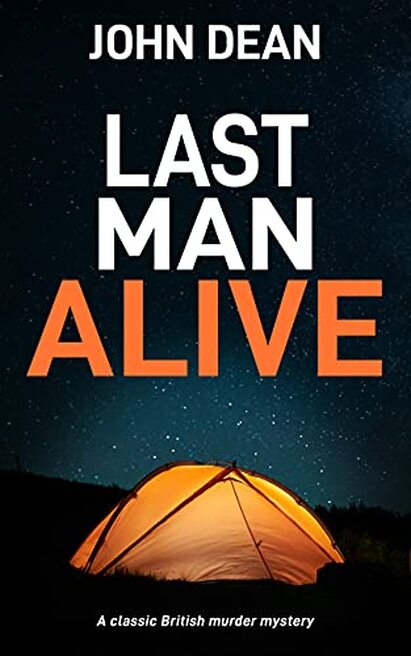
Alex: Are you a writer that plans a detailed synopsis or do you set out with a vague idea and let the story unfold as you write?
John: I do some planning, giving the story a basic roadmap, but after that I tend to let it take me where it wants to. If it does that, it’s a sign that the story is alive.
Alex: Tell us about your latest novel.
John: Last Man Alive is the latest book in the series featuring Detective Chief Inspector Jack Harris, published by The Book Folks - my 21st crime novel to appear.
Harris is on the trail of a missing man whom he suspects of having dementia and being at grave risk, when he makes a terrible discovery. In a tent, nestled within the windy hills of the northern Pennines, lies another man. He has been shot dead.
The detectives soon establish that the victim was not a random camper but an investigative journalist. As Harris tries to work out what brought the victim to his area, Special Branch, acting on the advice of a foreign police force, block the veteran detective from investigating further. However, Harris isn’t one to give others free rein over his patch, particularly when he’s hunting a killer.
Alex: What was the first book you read?
John: I was an avid reader as a child – Pooh Bear, Mary Plain etc, moving onto The Famous Five, The Secret Seven and The Hardy Boys novels.
John: I do some planning, giving the story a basic roadmap, but after that I tend to let it take me where it wants to. If it does that, it’s a sign that the story is alive.
Alex: Tell us about your latest novel.
John: Last Man Alive is the latest book in the series featuring Detective Chief Inspector Jack Harris, published by The Book Folks - my 21st crime novel to appear.
Harris is on the trail of a missing man whom he suspects of having dementia and being at grave risk, when he makes a terrible discovery. In a tent, nestled within the windy hills of the northern Pennines, lies another man. He has been shot dead.
The detectives soon establish that the victim was not a random camper but an investigative journalist. As Harris tries to work out what brought the victim to his area, Special Branch, acting on the advice of a foreign police force, block the veteran detective from investigating further. However, Harris isn’t one to give others free rein over his patch, particularly when he’s hunting a killer.
Alex: What was the first book you read?
John: I was an avid reader as a child – Pooh Bear, Mary Plain etc, moving onto The Famous Five, The Secret Seven and The Hardy Boys novels.
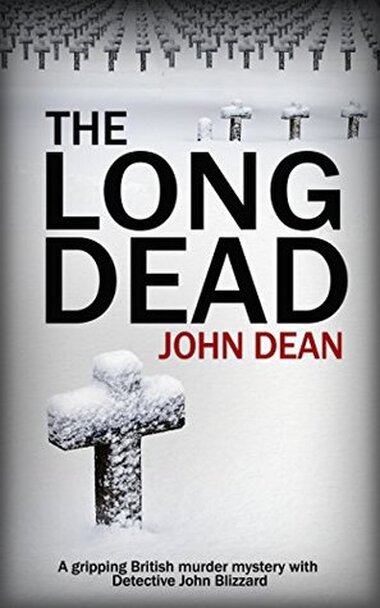
Alex: How much research do you do and what does it usually entail?
John: I do a fair bit of research, chatting to folks who may be able to help and using the Internet, but after forty years of journalism, a lot of it specialising in crime, and sixty years of life, I’ve accrued a fair bit of knowledge! I do try to keep up with advances in criminal detection and police procedures.
Alex: Do you ever base your characters on people you have encountered in real life?
John: Not completely but I do sometimes have the physical appearance of real people in mind as I write, which helps me visualise the characters, whose personalities are entirely original.
Alex: Which was the last book you read that blew you away?
John: The crime novel How The Wired Weep by the brilliant Ian Patrick – masterful!
Alex: How do you market your books?
John: My publisher does a lot of the marketing but I take every opportunity to help, everything from social media to giving talks and appearing at events.
John: I do a fair bit of research, chatting to folks who may be able to help and using the Internet, but after forty years of journalism, a lot of it specialising in crime, and sixty years of life, I’ve accrued a fair bit of knowledge! I do try to keep up with advances in criminal detection and police procedures.
Alex: Do you ever base your characters on people you have encountered in real life?
John: Not completely but I do sometimes have the physical appearance of real people in mind as I write, which helps me visualise the characters, whose personalities are entirely original.
Alex: Which was the last book you read that blew you away?
John: The crime novel How The Wired Weep by the brilliant Ian Patrick – masterful!
Alex: How do you market your books?
John: My publisher does a lot of the marketing but I take every opportunity to help, everything from social media to giving talks and appearing at events.
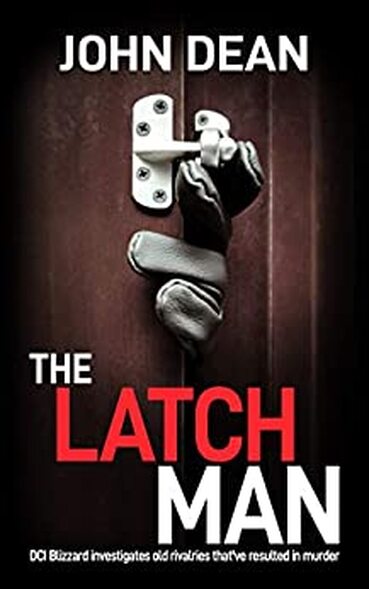
Alex: What are your interests aside from writing? And what do you do to unwind?
John: Football and gardening (but only the gardening helps me unwind as my team is not exactly the most successful one on the planet!) plus watching the mighty Durham play cricket whenever the opportunity arises.
Alex: Which authors do you particularly admire and why?
John: Too many to mention but on the crime front you can’t beat a good Sherlock Holmes by Sir Arthur Conan Doyle because Holmes is such a brilliant character and the plots are so ingenious and I love J G Ballard’s dystopian fiction for the sheer invention of the stories and the way the books take an idea to the extreme but still retain a sense that they could really happen. I also read a lot of non-fiction by a variety of authors.
Alex: Thank you so much John for sharing your writing journey with us. It's been really interesting to hear your views and working methods on this curious business of writing fiction.
John: You're welcome, Alex. It's been a pleasure.
John: Football and gardening (but only the gardening helps me unwind as my team is not exactly the most successful one on the planet!) plus watching the mighty Durham play cricket whenever the opportunity arises.
Alex: Which authors do you particularly admire and why?
John: Too many to mention but on the crime front you can’t beat a good Sherlock Holmes by Sir Arthur Conan Doyle because Holmes is such a brilliant character and the plots are so ingenious and I love J G Ballard’s dystopian fiction for the sheer invention of the stories and the way the books take an idea to the extreme but still retain a sense that they could really happen. I also read a lot of non-fiction by a variety of authors.
Alex: Thank you so much John for sharing your writing journey with us. It's been really interesting to hear your views and working methods on this curious business of writing fiction.
John: You're welcome, Alex. It's been a pleasure.
